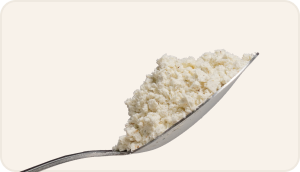GRAB A PACK
Not Sure?
Try Our Sample Pack
The 5 Benefits of Eating Eggs for Breakfast
Eggs have long been a staple breakfast food, and for a good reason. Not only are they versatile ingredients, but they also offer a variety of health benefits. In this blog post, we'll explore the nutritional value of eggs and their impact on various aspects of health, from cholesterol levels to heart health.
Nutritional value of eggs
Eggs are an excellent source of high-quality protein, essential vitamins and minerals, and choline, a nutrient important for brain and liver health. Consuming nutrient-dense foods in the morning is particularly important, as it sets the tone for the day and provides sustained energy. We'll dive deeper into the nutritional content of eggs and their benefits for overall health.
Stay tuned for the following sections, where we'll explore the impact of eggs on cholesterol levels, the importance of choline in eggs, the role of eggs as a source of protein and amino acids, and their effect on heart health.
How cholesterol in eggs affects individuals differently
Eggs have often been a topic of debate regarding cholesterol and heart health. Cholesterol is a fatty substance essential for various bodily functions, but too much of it can increase the risk of heart disease. Eggs contain cholesterol, so some people are concerned about the impact of egg consumption on their cholesterol levels.
However, it's important to note that there are two types of cholesterol: LDL (low-density lipoprotein) and HDL (high-density lipoprotein). LDL is often referred to as "bad" cholesterol, as high levels of LDL can contribute to the buildup of plaque in the arteries, increasing the risk of heart disease. HDL, on the other hand, is often referred to as "good" cholesterol, as it helps remove excess cholesterol from the bloodstream.
Studies have shown that while egg consumption can increase LDL cholesterol levels in some individuals, it can also increase HDL cholesterol levels. The impact of dietary cholesterol on heart health is still debatable, as some studies have found no significant association between dietary cholesterol and heart disease risk. However, it's essential to consider individual factors such as age, genetics, and lifestyle when evaluating the impact of egg consumption on cholesterol levels.
The importance of choline in eggs for the body
Aside from being a rich source of high-quality protein, eggs are also a great source of choline. Choline is an essential nutrient for various bodily functions, including brain and liver health. It's also a precursor to the neurotransmitter acetylcholine, which is involved in memory and muscle control.
Despite its importance, many people need to consume more choline. Studies have shown that most people in the United States need to meet the recommended daily choline intake. This is where eggs come in - one large egg contains around 147 milligrams of choline, which is approximately a quarter of the recommended daily intake for women and a fifth for men.
Research has suggested that choline may have potential health benefits beyond its role as a precursor to acetylcholine. For example, studies have linked choline intake to a lower risk of liver disease and improved cognitive function. Choline may also play a role in reducing inflammation in the body.
Given the importance of choline and the difficulty in obtaining enough of it through the diet alone, incorporating eggs into your diet can be a simple and effective way to boost your choline intake.

The role of eggs as a source of protein and amino acids
Protein is an essential nutrient that plays a vital role in various bodily functions, including building and repairing tissues, producing enzymes and hormones, and maintaining healthy bones, muscles, and skin. While protein can be obtained from various sources, including meat, fish, and plant-based foods, eggs are a precious source of high-quality protein. One large egg contains about 6 grams of protein, including all nine essential amino acids the body cannot produce on its own. Essential amino acids are crucial for protein synthesis, which is the process of building new proteins in the body. The amino acid profile of eggs is so complete that it is often used as a reference protein to evaluate the quality of other dietary proteins.
High-quality protein, such as the protein found in eggs, has been linked to various health benefits, including increased muscle mass and strength, improved bone health, and better weight management. Protein is also crucial for satiety and can help regulate appetite, which may be particularly beneficial for those trying to lose weight or maintain a healthy weight. Incorporating protein-rich foods like eggs into your breakfast can also help provide sustained energy throughout the day. Studies have shown that consuming protein in the morning can help regulate blood sugar levels and reduce cravings later in the day.
While eggs are a great source of protein, it's important to note that protein needs may vary based on factors such as age, sex, and physical activity level. It's also essential to consume a balanced diet that includes a variety of nutrient-dense foods in addition to protein.
Eggs and their effect on heart health
Eggs have been a topic of controversy when it comes to heart health due to their cholesterol content. However, research has shown that eggs can positively affect heart health when consumed in moderation as part of a balanced diet. Studies have shown that egg consumption does not increase the risk of heart disease in healthy individuals. In some studies, consuming one egg daily has been associated with a lower risk of heart disease.
One potential reason is that eggs contain beneficial nutrients for heart health, such as antioxidants and omega-3 fatty acids. Additionally, the high-quality protein found in eggs can help to lower blood pressure and improve cholesterol levels.
It is important to note that consuming eggs in excess or with a diet high in saturated and trans fats can increase the risk of heart disease. Therefore, it is essential to consume eggs as part of a balanced diet that includes various nutrient-dense foods and limits the intake of unhealthy fats.
In conclusion, while eggs have been the subject of debate regarding heart health, research suggests that they can positively affect heart health when consumed in moderation as part of a balanced diet. By incorporating eggs into your diet, you can benefit from their high-quality protein and nutrient content while maintaining a healthy heart.
Conclusion
In conclusion, eggs are a highly nutritious food with numerous health benefits. They are an excellent source of high-quality protein, essential vitamins and minerals, and choline, vital for brain and liver health. Despite the controversy over their cholesterol content, studies have shown that moderate egg consumption is generally not associated with an increased risk of heart disease in healthy individuals. Eggs can also be a convenient and satisfying breakfast option that provides sustained energy throughout the day. Incorporating eggs into your diet can be a great way to support your overall health and well-being.


















